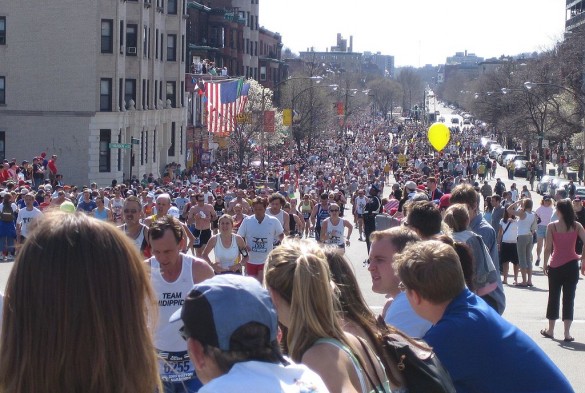
Passing through an outdoor mag-and-bag checkpoint to enter a venue in downtown Athens late in the 2004 Summer Olympics, I came upon another of many security moments in those Games that were more sardonically amusing than appalling.
The one staffer in charge of looking at my ID and bag was a uniformed Greek soldier sitting in a folding chair, head back, sound asleep, rifle in his lap, finger on trigger.
It occurred to me as I walked away that I was more in danger of being shot because of a soldier’s bad dream than by a terrorist.
On assignment for the Seattle Post-Intelligencer, I encountered numerous episodes of lax or no security at Olympic sites throughout Greece, site of the first Summer Games since the 9/11 terror attacks. Despite more than $1 billion in unbudgeted resources devoted to additional security, demanded mostly by the U.S. government, anyone with an agenda of madness and a bag of explosives could have made daily mayhem with a drop in trash cans outside every venue.
But I don’t blame the Greeks. Geographically, Athens is a sprawling metropolis larger than Boston, or even Los Angeles, and almost entirely indefensible. Politically, the Greeks knew better. In terms of the threat posed to an Olympics in Greece by anti-American Muslim jihadists, well, it wasn’t going to happen.
A friend of a friend, Petros Petrakopoulos, was a native Athenian and an architect who help design the sailing center for Olympic racing. He was well-versed in the politics and strife in that part of the world. Over dinner in a taverna early in the Olympics, he explained the relationship between Greece and many in the disaffected Arab world that was little understood in the America of 2004, or now.
“Greece is the only friend the Arabs have in Western Europe,” he said. “The consequences of an act here would not help their cause.”
As my travels continued, his observation was repeated again and again by Greeks who knew the danger was negligible. Targets were plentiful and easy, and not just because the tired Greek soldier failed to deliver to me a steely glower. In that time and that place, there just wasn’t the will to kill.
As was seen in Boston Monday, there was a will to kill. Whether the murderers were domestic or foreign is not yet known, and for the moment, secondary to a point about sports as a target for terror.
The bad guys picked an easy target — 26 miles (times two; both sides of the route) of open partying — but they picked on a hard bunch. This was Boston, this was a holiday, these were mostly amateur athletes and all were well accepting of pain, purpose and perseverance. Seal Team 25,000.
For a century, people have come from all over the world to the runner’s Mecca for an annual ritual of heart, mind and body. Somebody gashed them, as well as millions who live vicariously around and through them. They will prevail.
We knew it was coming. Since 9/11, we knew that if the diabolical wanted to have at America again in a deeply visceral way, probably it would be via sports. So we’ve wrapped our sports events in double-secret security. And it’s worked. Until now.
How do police smother a 26-mile footrace in protection? They don’t.
The sight of dead and maimed bodies at the finish line of a worldwide sporting event in one of America’s grandest cities is an image now fixed gruesomely in the cultural consciousness. But the bad guys picked on a hard bunch.
Not to say that an attack on any other sports event would be any less horrific or meaningful. But running is such a universally sublime human experience, and running far is such a transcendent achievement because it has been done almost exactly the same way for the existence of the species.
There’s a reason the marathon is the last event in every Summer Olympics. When the race leader enters alone upon the track in front a giant stadium crowd that roars to its feet, well . . . TV will never do justice to the magnificence. When you win the lottery, put it on your bucket list.
Now, this wretchedness. Yet in my sportswriting experience, there are no athletes better equipped to help render moot this act of intimidation than those who would do such a hard feat so well, whether the deed lasts two hours or eight hours.
We will continue to gather to play sports, to watch sports and share in celebrating the best in humanity while solving for the worst. The race will be won.
In wrapping up the Athens Olympics, I wrote a column saying how disappointing it was for Greece, the smallest nation to host a modern Summer Olympics, to so egregiously overspend on facilities, only to have them half-empty because sports-loving Americans and Europeans were too intimidated to travel so close to the Arab world.
Such an absence of courage was best described by a much better writer, Pindar, the greatest lyrical poet of classical Greece and a chronicler of the ancient Olympics, whose words resonated from 3,000 years ago to 2004 and continue to 2013:
“Deeds of no risk are without honor.”

4 Comments
Nicely written column Art.
Glad you appreciated, j. Real hard day.
Nice Column, Art. I will use it in my social studies class.
Thanks, Peter. You made my day.